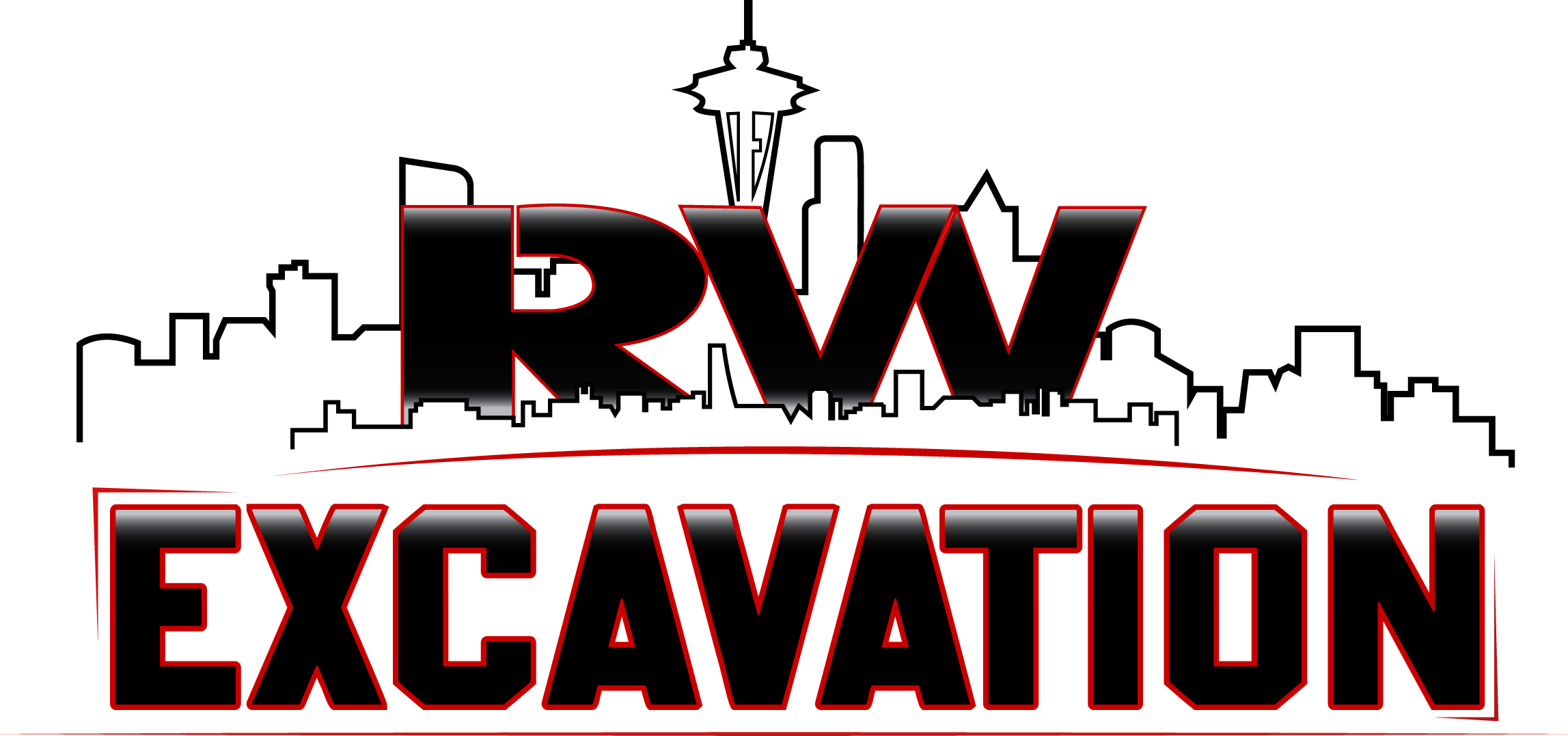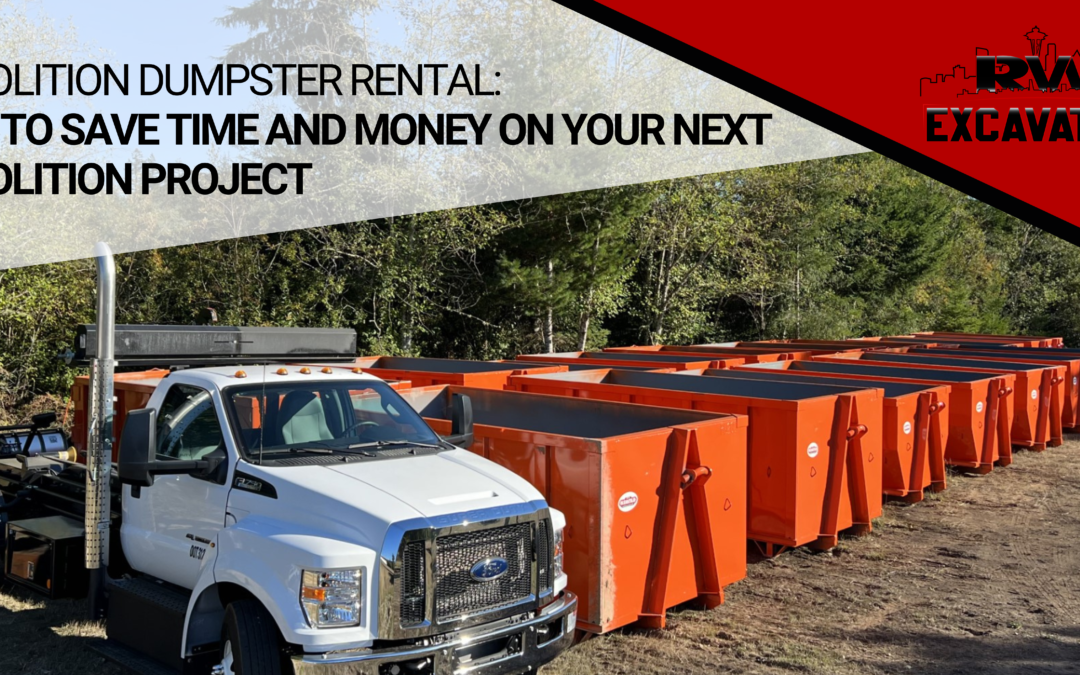Guest article written by Apex Junk Removal.
Are you planning a demolition project and want to save both time and money? Look no further! With the help of a reliable demolition dumpster rental service, you can streamline the process and make the most out of your project. Whether you’re renovating your home or tearing down an old building, a dumpster rental can be a game-changer.
Demolition projects can generate a massive amount of waste, which can quickly become overwhelming to manage. This is where a demolition dumpster rental comes in handy.
Here are some key benefits of using a dumpster for your demolition project:
1. Efficient Waste Disposal: A demolition dumpster provides a centralized location for all the waste and debris generated during the project. Instead of making multiple trips to the landfill, you can simply dispose of the materials in the dumpster, saving you time and effort.
2. Increased Safety: Keeping the worksite clean and organized is crucial for maintaining a safe environment during a demolition project. By having a dumpster on-site, you can prevent potential hazards caused by scattered debris and reduce the risk of accidents.
3. Time Efficiency: Loading debris into a dumpster is much faster and more efficient compared to manually hauling it away. This allows you to save valuable time and focus on the actual demolition work.
4. Environmental Responsibility: Renting a demolition dumpster promotes responsible waste management. Reputable rental companies ensure that the waste is disposed of properly, following the necessary regulations and recycling practices.
Choosing the right size dumpster for your project
Selecting the appropriate size of the dumpster is crucial to ensure efficient waste management during your demolition project. Here are some factors to consider when choosing a dumpster size:
1. Project Scale: Assess the size and scope of your demolition project. If it’s a small-scale renovation or DIY project, a smaller dumpster may be sufficient. However, for larger commercial or industrial demolitions, you may need a larger dumpster to accommodate the volume of waste.
2. Types of Materials: Consider the type of materials you’ll be disposing of. If you’re demolishing a structure with heavy materials like concrete or brick, you’ll need a dumpster with higher weight capacity. Ensure that the dumpster you choose can handle the specific materials you’ll be disposing of.
3. Available Space: Evaluate the space available at your worksite for placing the dumpster. Measure the dimensions and consider any restrictions such as overhead power lines or tree branches that may limit the size of the dumpster.
Once you have a clear understanding of these factors, you can consult with a demolition dumpster rental service to help you determine the most suitable size for your project. Having a dumpster that’s the right size will optimize waste management and prevent unnecessary costs or inconveniences.
How to properly load a dumpster for efficient use of space
Efficiently loading a demolition dumpster is essential to make the most of the available space and minimize the number of dumpsters needed. Follow these tips to ensure efficient use of space when loading your dumpster:
1. Sort and Separate: Before loading the dumpster, sort the materials and separate them into different categories. This will make it easier to maximize the space as you can stack similar items together.
2. Break Down Large Items: If you have large items, such as furniture or drywall, break them down into smaller pieces. This will help optimize the space and allow for more efficient loading.
3. Stack and Compact: As you load the dumpster, stack items vertically to utilize the full height of the container. Additionally, compact the materials by flattening boxes and crushing smaller items to create more space.
4. Distribute Weight Evenly: To maintain stability and prevent the dumpster from tipping, distribute the weight evenly throughout the container. Avoid placing all the heavy items on one side.
5. Fill Gaps: Fill any gaps or voids in the dumpster with smaller debris or loose materials. This will help ensure that you’re utilizing the entire space efficiently.
By following these loading techniques, you can maximize the space in your demolition dumpster and potentially save money by reducing the need for additional dumpsters.
Tips for saving time during your demolition project
Time is of the essence when it comes to a demolition project. Here are some tips to help you save time and increase efficiency during your demolition project:
1. Plan and Prepare: Before starting the demolition, create a detailed plan outlining the sequence of tasks and necessary equipment. This will help streamline the process and prevent delays.
2. Organize Tools and Equipment: Keep all your tools and equipment organized and easily accessible. This will eliminate time wasted searching for the right tool and ensure a smooth workflow.
3. Rent the Right Equipment: Renting specialized equipment for your demolition project can significantly speed up the process. Consider renting equipment such as excavators, jackhammers, or skid-steer loaders to make the work faster and more efficient.
4. Work in Stages: Instead of attempting to demolish the entire structure at once, break the project into manageable stages. This allows you to focus on one area at a time, increasing productivity and minimizing downtime.
5. Delegate and Communicate: If you have a team working on the project, delegate tasks accordingly and maintain clear communication. This will ensure that everyone is on the same page and working efficiently towards the common goal.
Implementing these time-saving strategies will help you complete your demolition project within the desired timeframe, saving you both time and money.
Cost-saving strategies when renting a demolition dumpster
Renting a demolition dumpster doesn’t have to break the bank. Here are some cost-saving strategies to consider when renting a dumpster for your demolition project:
1. Choose the Right Size: Rent a dumpster that’s appropriate for the size of your project. Renting a larger dumpster than you actually need will result in unnecessary costs. On the other hand, renting a dumpster that’s too small may require additional pickups or even a second dumpster, which can drive up the overall cost.
2. Opt for Longer Rental Periods: Estimate the duration of your demolition project accurately. Renting a dumpster for a longer period may be more cost-effective than extending the rental period later. Avoid rush fees or additional charges for exceeding the agreed rental period.
3. Avoid Prohibited Items: Be aware of any prohibited items that are not allowed in the dumpster. Disposing of prohibited items can result in additional fees or penalties. Familiarize yourself with the rental company’s guidelines to avoid any unnecessary expenses.
4. Consider Recycling: If your demolition project generates recyclable materials, inquire about recycling options with the rental company. Recycling certain materials may result in cost savings or even potential rebates.
By implementing these cost-saving strategies, you can effectively manage your budget and ensure that renting a demolition dumpster doesn’t become a financial burden.
Safety considerations when using a demolition dumpster
Safety should always be a top priority during a demolition project. Here are some safety considerations to keep in mind when using a demolition dumpster:
1. Proper PPE: Ensure that all workers involved in the demolition project wear appropriate personal protective equipment (PPE), including hard hats, gloves, safety goggles, and steel-toed boots.
2. Clear Pathways: Keep the area around the dumpster clear and free from obstacles. This will prevent accidents caused by tripping or falling while carrying heavy debris.
3. Secure Dumpster: Make sure the dumpster is placed on stable ground and properly secured to prevent tipping or shifting during loading. If necessary, use wheel chocks or other stabilization methods.
4. Caution with Heavy Items: Exercise caution when loading heavy items into the dumpster. Use proper lifting techniques and teamwork to prevent injuries. Avoid overloading the dumpster with excessively heavy materials.
5. Proper Disposal: Dispose of hazardous materials separately and according to regulations. Follow the guidelines provided by the rental company to ensure safe and responsible disposal.
Prioritizing safety throughout your demolition project will help prevent accidents, protect your workers, and ensure a smooth and incident-free process.
Environmental considerations and responsible disposal options
Environmental responsibility is crucial when it comes to demolition waste management. Here are some considerations and responsible disposal options to minimize the environmental impact of your demolition project:
1. Recycling: Identify materials that can be recycled and separate them from non-recyclable waste. Many rental companies offer recycling services or can guide you to the appropriate recycling facilities.
2. Donation: Consider donating reusable items such as furniture, appliances, or fixtures to local charities or organizations. This reduces waste and benefits the community.
3. Proper Disposal: Dispose of hazardous materials, such as asbestos or lead-based paint, following the regulations and guidelines set by local authorities. Improper disposal of hazardous materials can have severe environmental and health consequences.
4. Responsible Waste Management: Follow best practices for waste management, such as reducing waste generation, reusing materials whenever possible, and disposing of non-recyclable waste responsibly.
By implementing these environmental considerations and responsible disposal options, you can minimize the environmental impact of your demolition project and contribute to a more sustainable future.
Common mistakes to avoid when renting a demolition dumpster
When renting a demolition dumpster, it’s important to avoid common mistakes that can lead to unnecessary expenses or complications. Here are some common pitfalls to avoid:
1. Misjudging Dumpster Size: Accurately assess the volume of waste your project will generate to avoid renting a dumpster that’s either too small or too large.
2. Ignoring Rental Terms: Read and understand the rental agreement, including terms and conditions, rental period, additional fees, and prohibited items. Ignoring these details can result in unexpected charges or penalties.
3. Not Making Prior Arrangements: Ensure that you have a designated spot on your property for the dumpster before it arrives. Failing to make prior arrangements can cause delays and inconvenience.
4. Improper Loading: Follow the loading guidelines provided by the rental company to prevent damage to the dumpster or overloading, which may result in additional fees.
5. Disregarding Safety Guidelines: Prioritize safety by following proper safety protocols, using personal protective equipment, and disposing of hazardous materials responsibly.
By avoiding these common mistakes, you can ensure a smooth and cost-effective rental experience for your demolition dumpster.
Thanks for reading! If you’d like to learn more about our services at Apex Junk Removal, visit our website at www.apexrentalsusa.com

